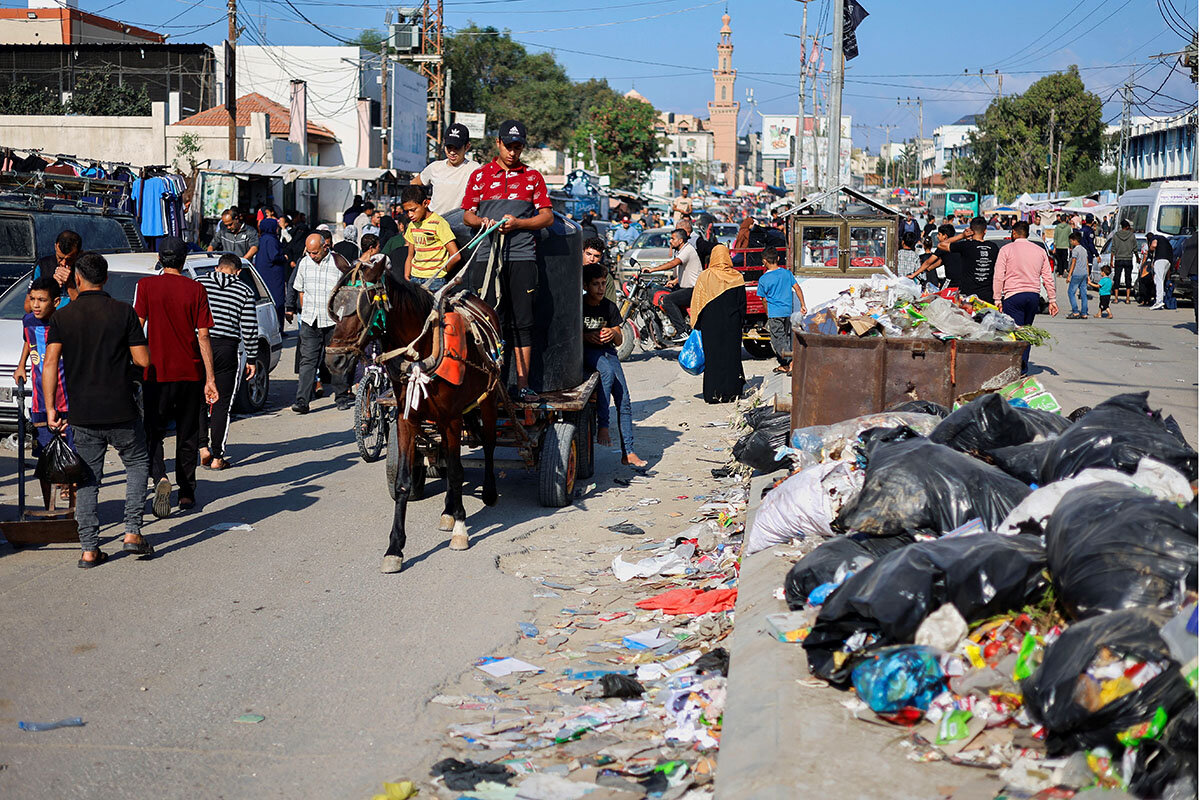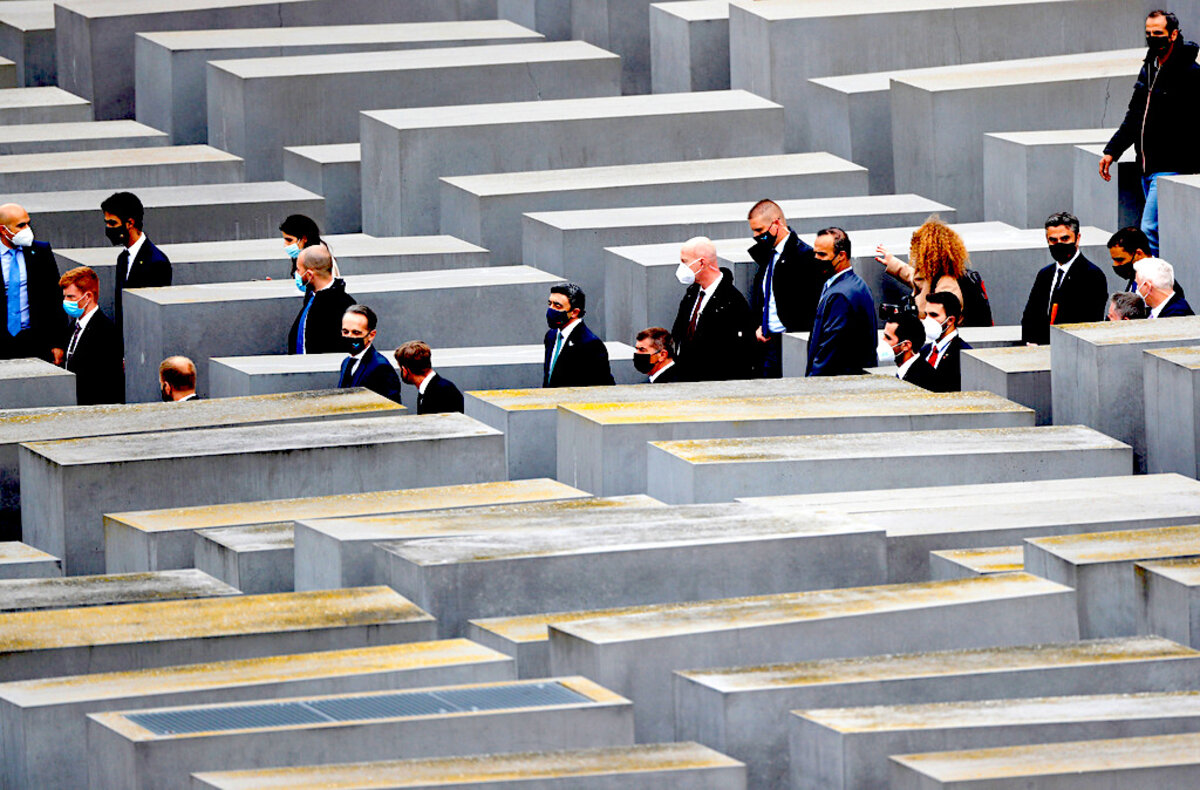The tragic crisis in Gaza has brought a reminder that security for Israel and a just future for the Palestinians are indivisible. This helps explain the intense diplomacy within the Middle East to prevent the conflict from spiraling into a full-blown catastrophe on both sides. If that diplomacy helps restore calm, it will rely on a longtime trend in the region: a shift toward moderation within Arab societies regarding Israel’s place in the region over the past half-century.
The numbers bear this out. A Washington Institute poll of Palestinians taken before the Oct. 7 brutal raid on Israelis found that 62% of Palestinians in Gaza opposed breaking a cease-fire with Israel. Half agreed that Hamas, the governing faction in Gaza that launched the attack, “should stop calling for Israel’s destruction.” The poll, published last week, found a sharp decline across Arab countries in support for extremist groups like Hamas – down to just 17% among people in the United Arab Emirates, for example.
Such sentiments show how far the region has changed. In 1967, Arab leaders codified their united rejection of Israel’s right to exist. Six years later, that stance resulted in a coalition of Arab countries invading Israel.
Last week’s surprise attack on Israel by Palestinian fighters – the worst since the war in 1973 – had a very different prologue. Five Arab countries have normalized ties with Israel: Egypt, Jordan, Bahrain, UAE, and Morocco. Sudan, which was part of the 2020 Abraham Accords, has yet to finalize its ties. Saudi Arabia was poised, before the Gaza crisis, to follow with its own agreement.
Trade and other forms of cooperation continue to expand between Israel and the Arab states of the Persian Gulf region. Qatar and Egypt are central peacemakers in international efforts to contain the current crisis. Since 2003, Iraq has been a democracy, not a dictatorship. The rise of the Islamic State's violent caliphate in 2014 was quickly ended.
In a recent interview with Fox News, Saudi Crown Prince Mohammed bin Salman expressed hope that bilateral negotiations with Israel will also “ease the life of Palestinians and get Israel as a player in the Middle East.” Mustafa Barghouti, general secretary of the Palestinian National Initiative, expresses similarly inclusive hopes. “Our goal is more than ending [Israel’s] occupation. It’s about ending this whole system of injustice that is affecting the future of everybody – including, by the way, Israelis themselves,” he said in a recent Al Jazeera podcast.
A poll of Palestinians conducted in June by the Palestinian Center for Policy and Survey Research offers a textured view of a region weary of constant conflict, poor governance, and corruption. Just 24% say the development of Islamic movements furthered Palestinian aspirations for self-determination. More Palestinians say rooting out corruption and fostering new leadership are more important than armed struggle against Israel.
Those attitudes are mostly consistent across the region and reflect many of the reasons for the 2011 Arab Spring uprising. They point to aspirations for an end to the conflict between Israel and Palestinians – not the destruction of Israel, but a renewal of their own societies based on democratic values.
“Will it be possible to break out of this endless cycle of revenge and counter revenge?” asked Raja Shehadeh, a Palestinian human rights activist, in a written piece in The Guardian yesterday. “Perhaps realising that revenge doesn’t bring security would be one way to start. ... Only then might this devastating war be a harbinger of change for a better future.”
Mr. Shehadeh’s hope implies a contract – a partnership of shared justice and prosperity already seeded in a region yearning for a future beyond intractable violence.
 Sara Miller Llana
Sara Miller Llana











